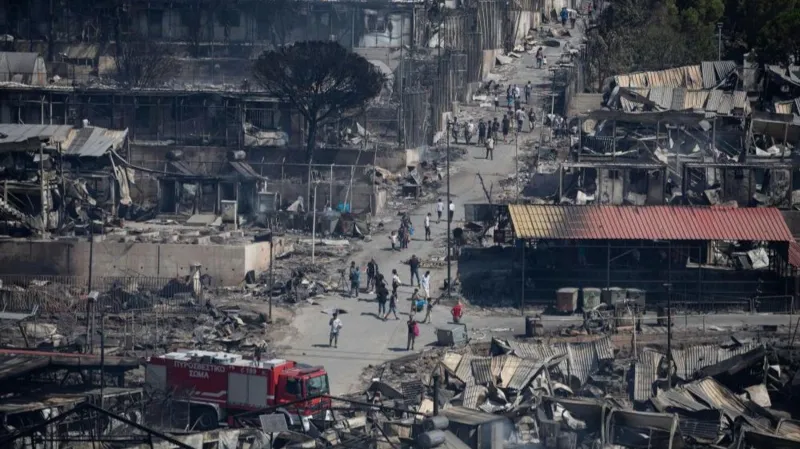In a significant turn of events, three migrants who were accused of starting a devastating fire at the Moria refugee camp in Greece have been found not guilty by a local court. This ruling comes after a lengthy trial in which the prosecution presented evidence suggesting that the fire, which destroyed much of the camp and displaced thousands, was intentionally set. However, the defense argued that the evidence was circumstantial and insufficient to prove guilt beyond a reasonable doubt.
The fire at Moria, which occurred in September 2020, drew international attention due to the conditions faced by refugees living there. Moria was already known for overcrowding and poor sanitation, making the destruction of the camp even more alarming. As the flames spread, the chaos forced many residents to flee for their lives, with some suffering injuries in the process. The aftermath of the fire saw a surge of criticism directed at the Greek government and the European Union for their handling of the refugee crisis.
The Moria fire’s devastation highlighted dire refugee conditions, igniting criticism of Greece and the EU’s crisis management.
During the trial, the court heard testimonies from multiple witnesses, including camp residents and firefighters who responded to the incident. While some witnesses claimed to have seen the three migrants near the origin of the fire, others testified that the fire could have been caused by accidents or negligence rather than malicious intent.
The defense team emphasized the lack of concrete evidence linking the accused to the act of arson, stating, “The prosecution has failed to provide a clear narrative of events that would lead to a conviction.”
The verdict of not guilty has sparked a range of reactions from various stakeholders. Some advocates for refugees expressed relief, believing that the decision underscores the need for due process and the presumption of innocence. Conversely, others in the local community, who were affected by the fire, have voiced frustration over the ruling. They argue that the need for accountability is essential in the wake of such tragedies.
In the broader context, this case highlights the ongoing challenges of managing refugee camps in Europe and raises questions about the legal protections afforded to migrants. As the situation in Moria and other camps continues to evolve, the implications of this ruling may resonate beyond the courtroom, influencing future policies and public perception regarding the ongoing refugee crisis.
The not guilty verdict serves as a reminder of the complexities involved in adjudicating incidents within such volatile environments, where the lives of many are intertwined in a web of uncertainty.














